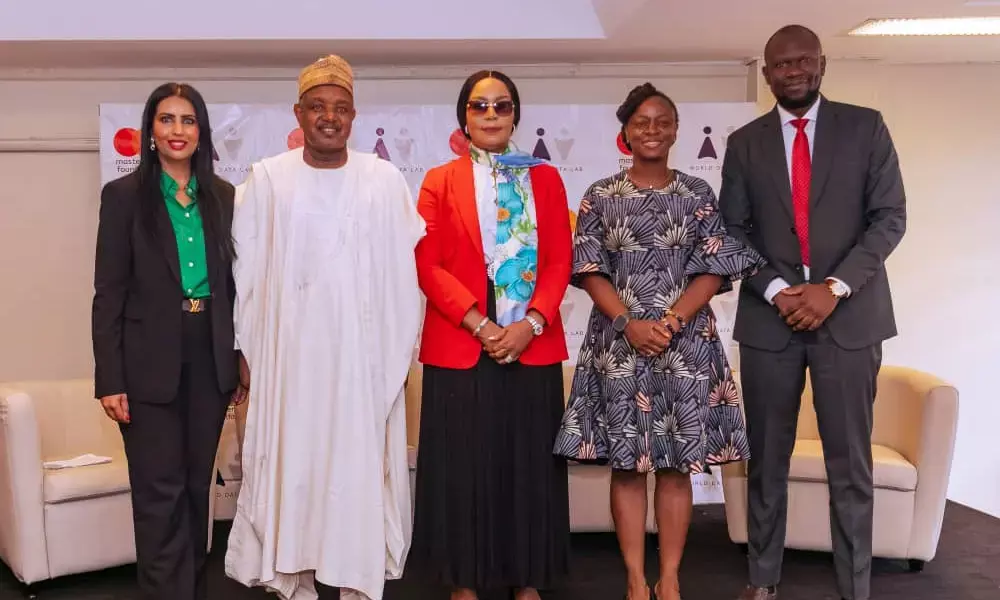World data lab, Mastercard foundation to create 30 million jobs in Africa
On foreign countries and agencies producing data for Nigeria and Africa, he said such data hardly represented the real situation and could be misleading.;

World Data Lab, in collaboration with the Mastercard Foundation, has unveiled the African Youth Employment Clock in Nigeria to help create 30 million jobs in Africa by 2030.
Sen. Abubakar Bagudu, Minister of Budget and Economic Planning, said on Tuesday in Abuja that the inauguration of the clock aligned with the Renewed Hope Agenda of President Bola Tinubu, which partly focused on industrialisation and job creation.
Supreme News reports that the African Youth Employment Clock is a tool to monitor youth job growth and forecast youth employment trends until 2030.
The clock is intended to democratise data and inform decision-making in the public and private domains.
“This is helpful to us in Nigeria because, as part of the Renewed Hope agenda strategy, it will help us confront our realities, drop short-term plans, and create an environment that will make our younger ones live more prosperously in the future.
“What the Mastercard Foundation and World Data Lab are doing will be helpful to our strategy in terms of helping us in moving fast, and many policies have been introduced to support that dream of ensuring that our young ones have employment opportunities,’’ Bagudu said.
On foreign countries and agencies producing data for Nigeria and Africa, he said such data hardly represented the real situation and could be misleading.
He said it was important that Africans understood the methodology for the data generation for better informed decisions and true representation of the continent.
Mrs. Nkiruka Onyejeocha, Minister for State, Labour, and Employment, said the unemployment rate in Africa required urgent strategic plans and commitment to avert its grave outcomes.
Onyejeocha said the Federal Government was implementing bold and innovative strategies to tackle the challenge, such as engaging in economic diversification, skills acquisitions, supporting SMES, deploying innovative education, and private sector engagement.
“An estimated 245 million young Africans are currently unemployed and could grow to over 297 million people by 2030 if we fail to act decisively.
“There is a renewed agenda to transform the labour market with the emphasis on the youth; the agenda seeks to promote entrepreneurship and expand job creation programs,” she said.
She said that credible data was the backbone of quality decision-making, adding that the clock would enable policymakers to identify the gaps in existing strategies and tailor interventions.
Mrs. Rosy Fynn, Country Director, Nigeria Mastercard Foundation, said that with the help of the clock, the 30 million jobs they would be creating would be fulfilling and dignified.
“The African youth employment clock is going to give us access to very important data that will allow us to see where to put our efforts.
“We also need to know that a lot of jobs that are to come will be in the service space, so we now need to provide systems, tools, and access to finance that will enable people to get opportunities in the service industry,” she said.
She said that the 30 million jobs would have a multiplier effect through building skills, access to funding, and creating market opportunities to enable entrepreneurs to scale up their businesses.
On the role of governments to reduce the unemployment rate, she said the government needed to put in place enabling policies that could support youth employment.
Dr. Reshma Sheoraj, Vice President, Strategic Engagements, World Data Lab, said the data model they deployed was consistent, comparable, and used to monitor job trends in Africa, Nigeria, and up to sub-national levels.
“Our mission is to provide decision-makers with the crucial data needed to drive meaningful change for the world’s youngest workforce.
“We are honoured to collaborate with the Mastercard Foundation in advancing a deeper understanding of youth employment in Africa,Sheoraj said.
She said they were working with the National Bureau of Statistics, the International Labour Organisation, and other international sources to generate their data.

